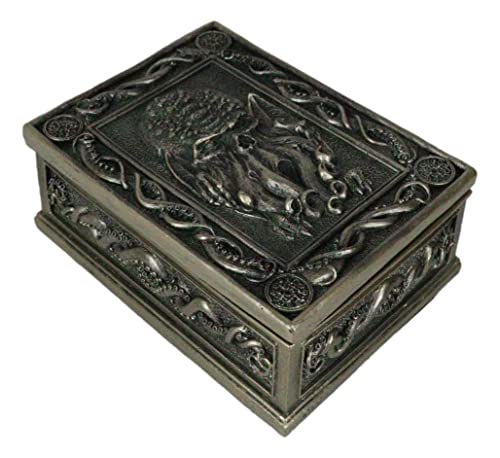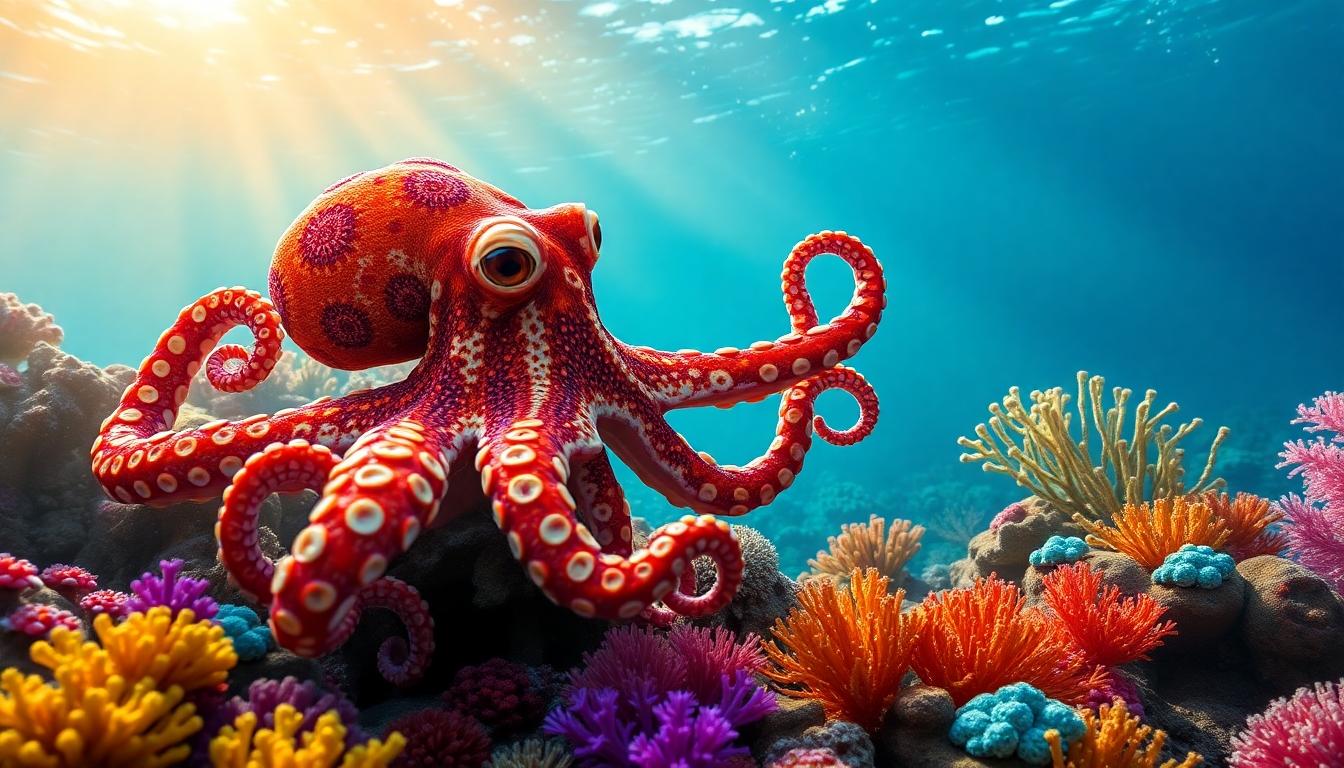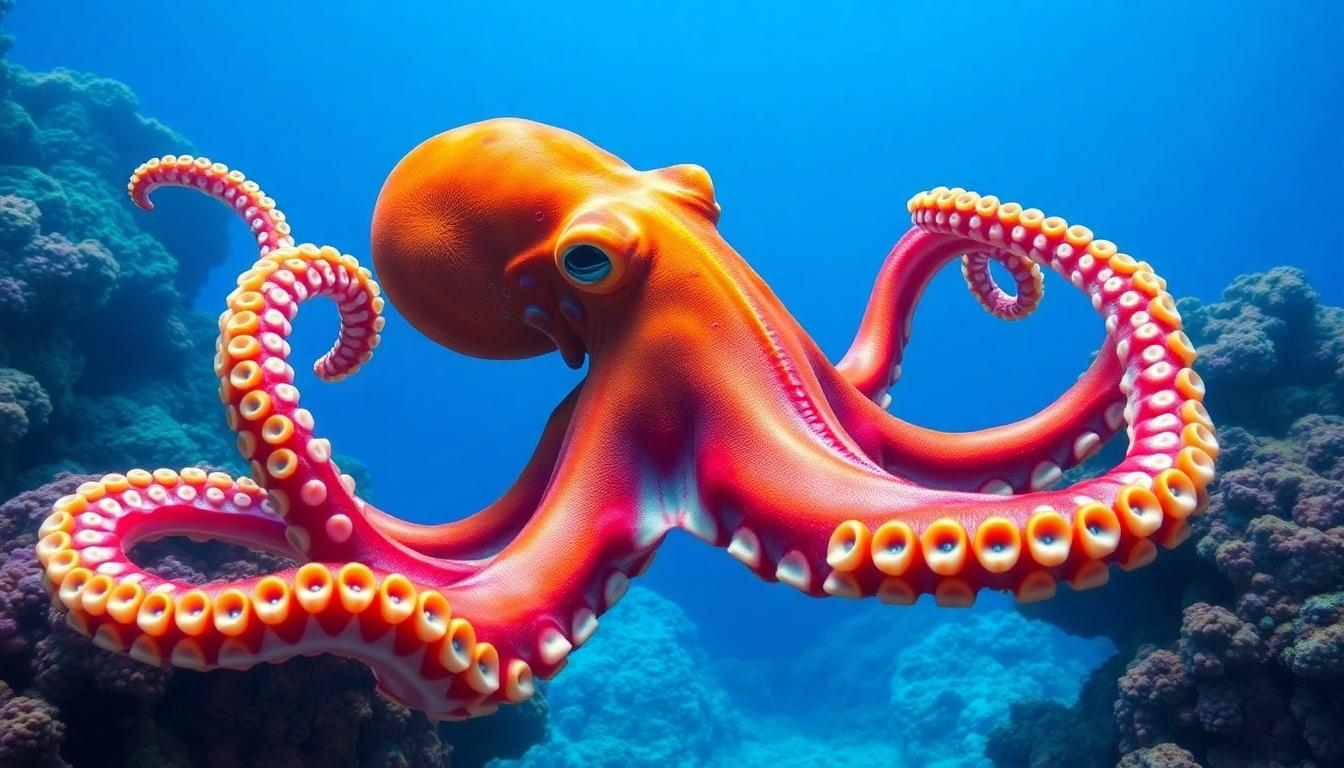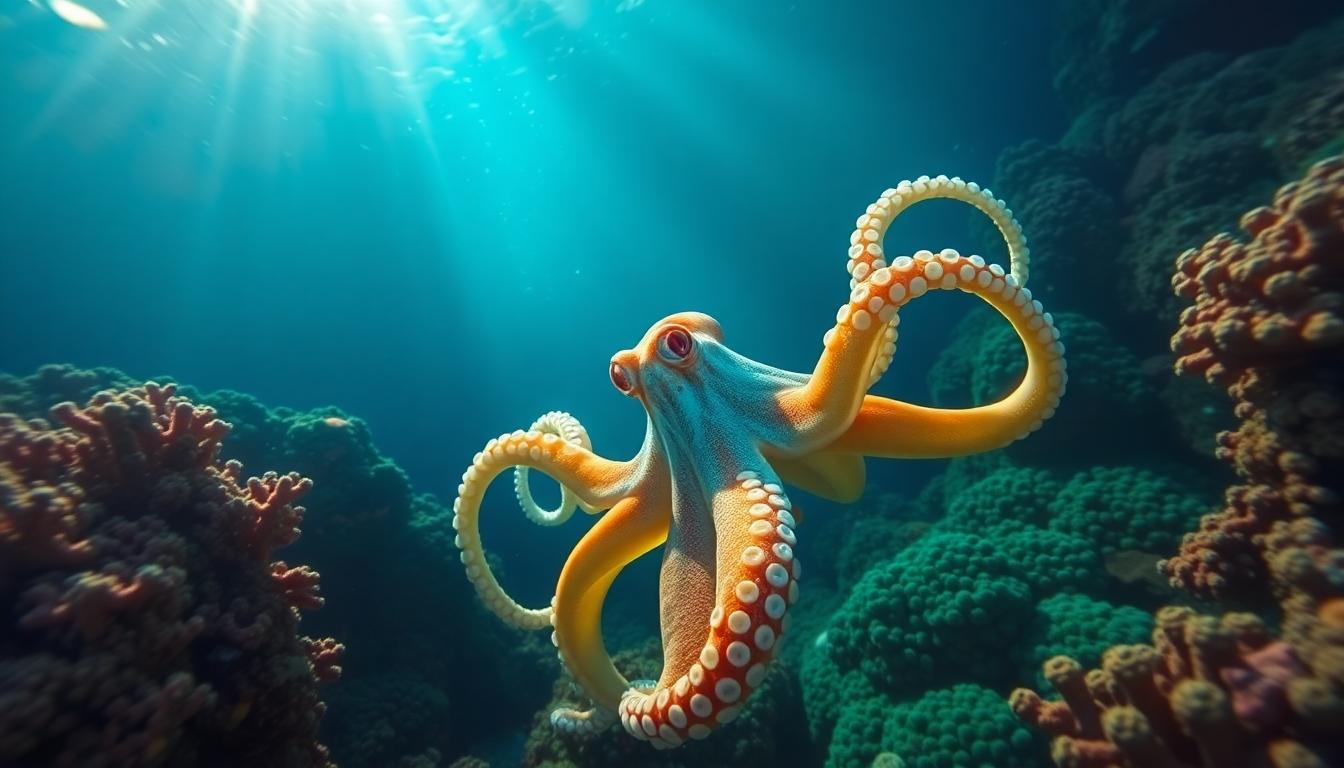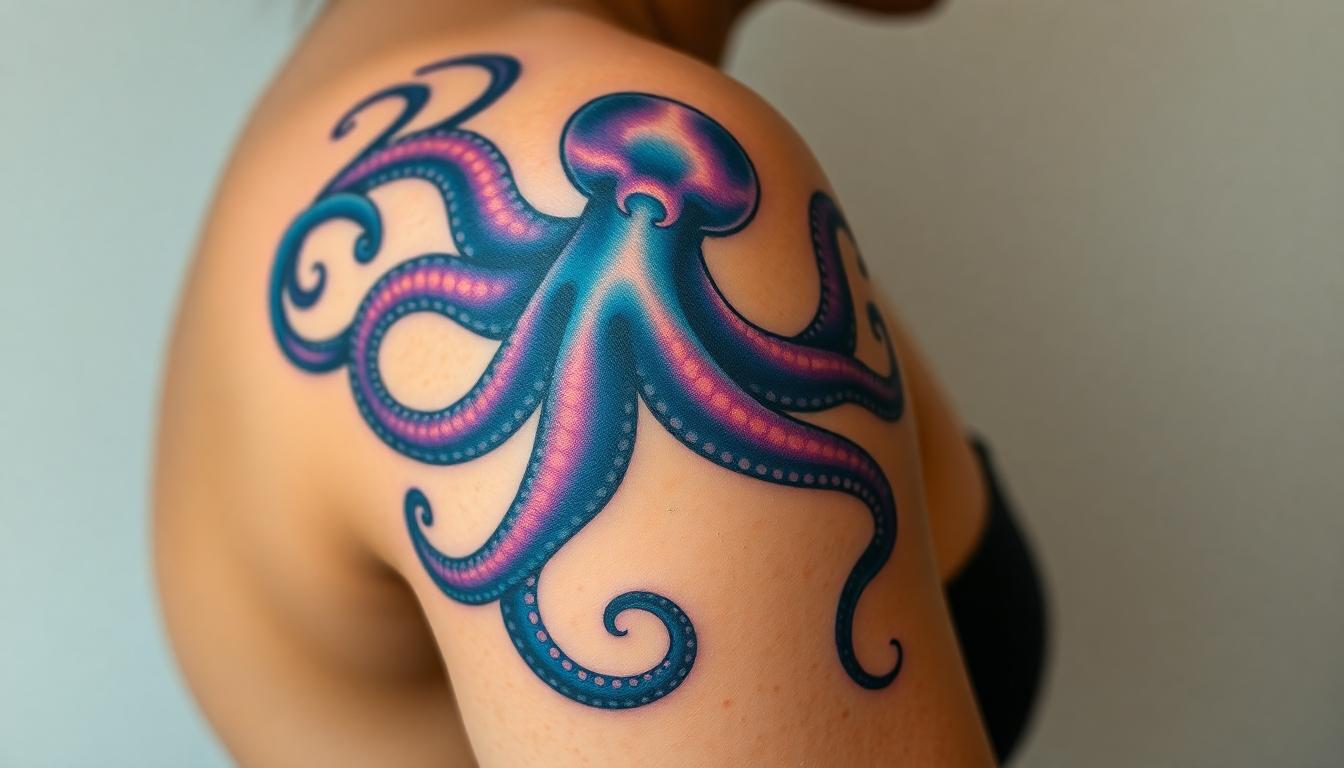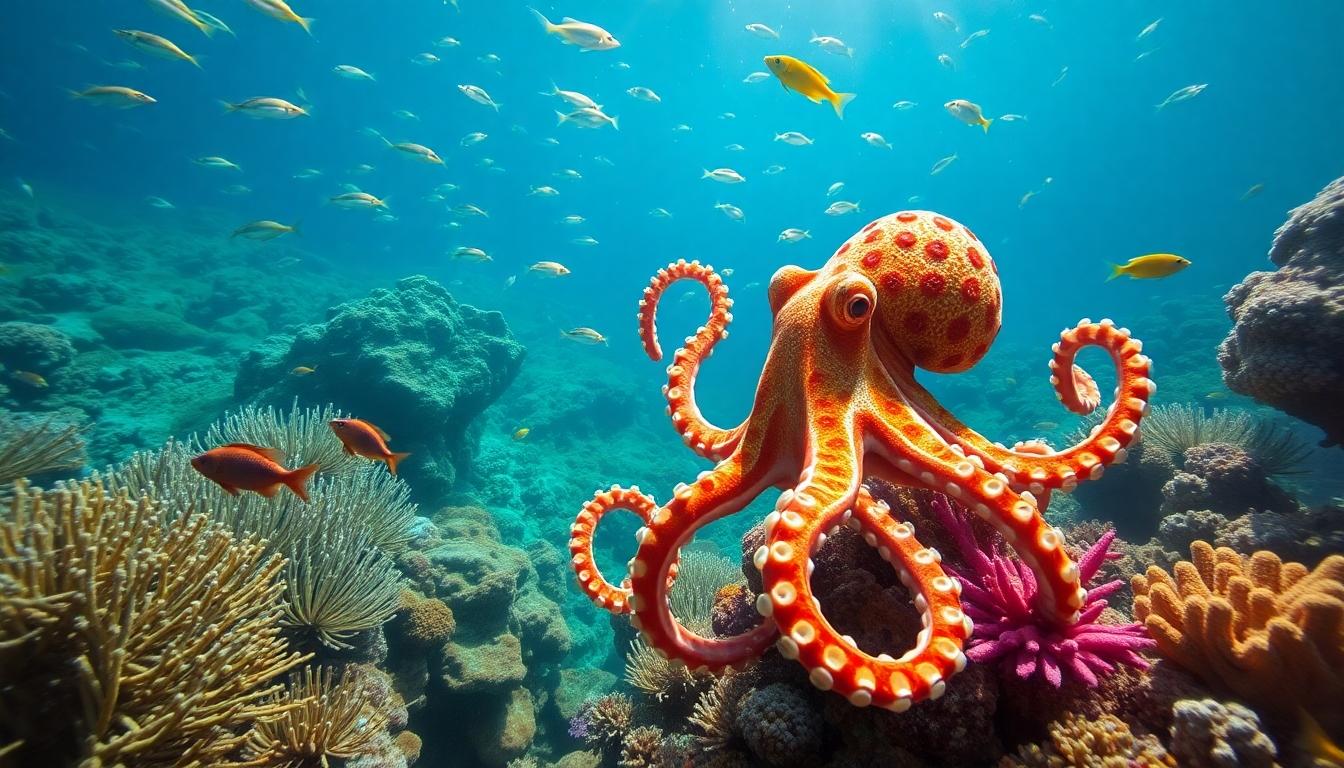The octopus, with its eight tentacles and extraordinary intelligence, has captivated human imagination for centuries. We’ve watched these mysterious creatures navigate complex environments, change colors instantly, and solve puzzles that would challenge even the most clever humans. It’s no wonder the octopus has become a powerful symbol across cultures, representing everything from creativity and flexibility to mystery and the unknown.
In this text, we’ll dive deep into the intriguing area of octopus symbolism. From ancient Greek mythology where they embodied cunning and adaptability to modern interpretations in art and literature, we’ll explore how this remarkable sea dweller has become a meaningful emblem in our collective consciousness. Whether you’re drawn to the octopus as a spiritual totem or simply curious about its cultural significance, you’re about to discover the rich symbolic tapestry this intelligent invertebrate has woven throughout human history.
The Ancient Origins of Octopus Symbolism
Octopus symbolism dates back thousands of years, appearing in diverse ancient cultures across maritime regions. Archaeological evidence reveals how these intelligent cephalopods captured human imagination, becoming powerful symbols in early civilizations where sea life played a crucial role in daily existence.
Greek and Mediterranean Octopus Imagery
Mediterranean civilizations, particularly the Minoans of Crete, incorporated octopus imagery extensively in their artistic expressions. Elegant octopus motifs adorned pottery, frescoes, and jewelry from the Bronze Age (2000-1450 BCE), showcasing the creature’s flowing tentacles in stylized designs. Archaeological findings at Knossos Palace feature octopus representations with naturalistic details, demonstrating the Minoans’ close observation of marine life. Greek mythology connected octopuses to Poseidon, god of the sea, viewing them as creatures of mystery and transformation. Ancient sailors respected octopuses for their perceived intelligence and evasive capabilities, often depicting them on trading vessels as protective symbols. These Mediterranean cultures valued the octopus as representing adaptability, strategic thinking, and the unforgiving nature of the sea.
Japanese Octopus Folklore
Japanese culture embraced octopus symbolism with unique interpretations rooted in the country’s deep maritime traditions. Traditional folklore portrays the octopus (tako) as a complex character possessing both benevolent and mischievous traits. Ukiyo-e prints from the Edo period (1603-1868) frequently featured octopuses, most famously in Hokusai’s “The Dream of the Fisherman’s Wife,” demonstrating their cultural significance. Ancient coastal communities in Japan viewed octopuses as guardians of hidden oceanic treasures and carriers of ancestral wisdom. Fishermen developed rituals honoring octopuses, believing these practices ensured safety at sea and abundant catches. Japanese folklore also includes tales of shape-shifting octopuses that could transform into human form, emphasizing the creature’s perceived intelligence and adaptability. These stories reflected Japan’s deep connection to the ocean and its creatures, positioning the octopus as a mysterious bridge between human and marine worlds.
Octopus Symbolism in Modern Culture
Octopuses embody diverse symbolic qualities in contemporary culture, reflecting their remarkable biological traits and behaviors. Their representation spans across various mediums, from literature to visual arts, where they’re associated with intelligence, adaptability, complexity, and mysticism.
Literary Representations
Literary works frequently portray octopuses as enigmatic beings that symbolize the unknown depths of existence. H.P. Lovecraft’s cosmic horror stories feature the famous octopus-like entity Cthulhu, representing the incomprehensible nature of the universe beyond human understanding. Throughout literary history, these cephalopods have embodied hidden knowledge and secrets, drawing on their natural ability to camouflage and navigate complex environments. Authors leverage the octopus’s biological uniqueness to explore themes of transformation, complexity, and the mysterious unknown in their narratives.
Film and Media Portrayals
Media representations of octopuses tend to highlight their positive attributes, emphasizing their remarkable intelligence and problem-solving abilities. The acclaimed Netflix documentary “My Octopus Teacher” showcases a filmmaker’s profound connection with an octopus, illustrating qualities of intelligence, compassion, and regeneration that resonated with millions of viewers worldwide. Popular culture regularly employs octopus imagery to symbolize multitasking capabilities and escapism, directly referencing their eight arms and ink-releasing defense mechanism. These portrayals have transformed the octopus from a mere sea creature into a powerful symbol of versatility and adaptation in challenging circumstances.
The Spiritual Meaning of Octopuses
Octopuses embody profound spiritual significance across various belief systems and interpretations. Their unique characteristics and behaviors have established them as powerful symbols with multidimensional meaning in spiritual contexts.
Intelligence and Adaptability
Octopuses symbolize exceptional intelligence and remarkable adaptability, making them spiritual totems for problem-solving and handling life’s complexities. Their decentralized nervous system demonstrates advanced cognitive traits that represent the importance of lifelong learning and maintaining curiosity. These fascinating creatures exhibit strategic thinking by adjusting to changing environments, utilizing tools, and escaping predators through rapid problem-solving techniques. The flexibility octopuses display serves as a spiritual reminder of the value in multitasking and managing many responsibilities with precision and grace. Connected to the Water Element and Moon energy, octopuses represent the development of psychic insight and intuition, encouraging us to trust our inner wisdom when facing challenges.
Regeneration and Transformation
Octopuses possess the extraordinary ability to regenerate lost limbs, spiritually representing physical and emotional renewal in many traditions. This regenerative capability underscores their connection to cycles of transformation and rebirth, encouraging adaptability during life’s inevitable changes and transitions. Often associated with feminine energy, octopuses highlight the spiritual aspects of multitasking abilities and emotional depth that transcend physical limitations. Their complex behaviors mirror life’s intricate interconnections, teaching us to embrace diverse perspectives and recognize the unseen threads that bind our experiences together. Spiritual practitioners view the octopus as a symbol of resilience and innovation, guiding us through emotional currents that remain invisible to others but profoundly impact our spiritual journey.
Cultural Interpretations of Octopus Symbolism
The octopus carries diverse symbolic meanings across various cultures worldwide. Its unique biological characteristics have inspired rich interpretations that reflect different cultural values and perspectives.
Western Perspectives
Western cultures primarily associate the octopus with intelligence, adaptability, and hidden knowledge. Greek mythology portrays these creatures as embodiments of cunning and problem-solving excellence, admired for their remarkable ability to navigate complex environments and situations. Modern interpretations in Western societies emphasize the octopus’s resilience and versatility, drawing parallels between their multiple arms and human capacity for multitasking. Literary works, particularly H.P. Lovecraft’s cosmic horror fiction, use octopus-like entities to represent the unknowable and mysterious aspects of existence that extend beyond human comprehension.
Eastern Philosophical Views
Eastern traditions offer contrasting yet equally profound interpretations of octopus symbolism. Hawaiian culture celebrates the octopus (heʻe) as a harbinger of good luck and a symbol of creation, connecting it to shapeshifting abilities and deep ocean spirituality. Japanese cultural perspectives highlight the octopus as an embodiment of flexibility and determination, particularly noting their ability to regenerate limbs as a powerful metaphor for perseverance. Many Eastern spiritual practices view the octopus as representing intuition, self-sacrifice, and altruism, often referencing maternal octopuses who guard their eggs with unwavering dedication as examples of selfless devotion. Native American traditions sometimes incorporate octopuses as trickster figures, celebrated for their adaptability in challenging environments and circumstances.
| Symbolic Theme | Cultural Interpretation |
|---|---|
| Adaptability | Handling change and solving complex problems |
| Intuition | Accessing hidden knowledge and trusting inner wisdom |
| Altruism | Demonstrating selflessness and maternal sacrifice |
| Complexity | Embracing multitasking and versatility in life |
Octopus Tattoo Meanings
Octopus tattoos have surged in popularity, embodying profound symbolism that resonates with people seeking meaningful body art. These intricate designs reflect the wearer’s appreciation for the octopus’s intelligent, adaptable, and creative qualities, making them important beyond their aesthetic appeal.
Popular Designs and Their Significance
Full-body octopus wraps encircling arms, legs, or torsos create stunning visual statements that symbolize protection and adaptability. These elaborate designs often incorporate realistic details of the octopus’s texture and movement, emphasizing its fluid nature and comprehensive safeguarding qualities. Minimal octopus silhouettes, in contrast, offer a subtle nod to intelligence and creativity, perfect for those who prefer understated symbolism with maximum meaning.
Ocean-themed compositions featuring octopuses alongside anchors, ships, or coral reefs emphasize the creature’s protective nature for sailors and its exceptional navigational skills. Many artists blend traditional maritime motifs with octopus imagery to create pieces that honor seafaring traditions while celebrating the octopus’s mysterious nature. Colorful interpretations utilizing vibrant blues, purples, and teals highlight the octopus’s remarkable color-changing abilities and transform these tattoos into ever-changing works of art.
Octopus and mermaid combinations have gained important traction, representing a perfect balance between femininity and adaptability. These designs typically portray interaction between these mythical figures, creating narrative pieces that speak to the wearer’s connection with oceanic symbolism and groundbreaking journeys. Japanese-style octopus tattoos draw from traditional ukiyo-e prints, incorporating artistic elements that honor the creature’s cultural significance in Japanese folklore as a symbol of longevity and protection.
Octopus as Environmental Symbol
Octopuses serve as powerful environmental symbols due to their critical role in maintaining marine network balance. These intelligent cephalopods regulate populations of other marine species and contribute significantly to underwater environmental health.
Conservation Messaging
The octopus offers compelling conservation symbolism through its remarkable adaptability and resilience—qualities essential for addressing today’s environmental challenges. Its exceptional problem-solving abilities and creativity inspire innovative approaches to conservation, particularly for marine habitat protection and climate change mitigation efforts. Conservation organizations can leverage octopus symbolism to promote ecological resilience and sustainability initiatives that resonate with diverse audiences.
Ethical concerns surrounding octopus farming highlight important conservation considerations. These farms often require increased energy consumption and risk ecological disruption when farmed octopuses escape into local ecosystems. These issues provide conservation advocates with concrete examples to promote sustainable seafood practices and responsible marine resource management.
The octopus’s intelligence and adaptability mirror qualities needed in effective conservation strategies—flexibility, creativity, and resilience in the face of environmental changes. By highlighting the ecological importance of these fascinating creatures, conservationists can foster greater appreciation for marine biodiversity and strengthen public commitment to ocean protection efforts.
Conclusion
The octopus stands as one of nature’s most profound symbols across time and cultures. From ancient pottery to modern tattoos this incredible creature transcends its biological existence to represent adaptability intelligence and transformation.
We’ve seen how its symbolism varies globally yet consistently embodies resilience and hidden wisdom. The octopus teaches us to embrace life’s complexities with flexibility and determination while reminding us of our responsibility to protect marine ecosystems.
As we continue to discover more about these remarkable beings their symbolic power only grows stronger. The octopus invites us to explore the depths of our own potential and navigate life’s challenges with the same ingenuity that has allowed it to thrive for millions of years.
Frequently Asked Questions
What does the octopus symbolize in different cultures?
The octopus symbolizes various traits across cultures. In Greek mythology, it represents cunning and adaptability, while in Japanese folklore, it’s a complex character with both benevolent and mischievous traits. Hawaiian culture celebrates it as a symbol of creation and good luck. In modern interpretations, the octopus embodies intelligence, versatility, and the mysterious unknown, reflecting our fascination with its remarkable biological abilities.
How did ancient civilizations view the octopus?
Ancient civilizations, particularly maritime cultures, revered the octopus in their art and mythology. The Minoans of Crete featured octopus imagery prominently in pottery and frescoes. Greeks associated octopuses with Poseidon, viewing them as symbols of mystery and transformation. Ancient sailors respected their intelligence and evasiveness, while coastal communities often regarded them as guardians of oceanic treasures, honoring them through rituals for safety at sea.
What spiritual significance does the octopus hold?
As a spiritual totem, the octopus symbolizes exceptional intelligence, problem-solving abilities, and adaptability. Its decentralized nervous system represents lifelong learning and curiosity. The ability to regenerate lost limbs symbolizes physical and emotional renewal, highlighting transformation and resilience. Often associated with feminine energy, the octopus encourages multitasking and emotional depth, guiding individuals through life’s interconnections with intuitive wisdom.
Why are octopus tattoos popular?
Octopus tattoos have gained popularity because they embody profound symbolism that resonates with individuals seeking meaningful body art. These designs reflect appreciation for the octopus’s intelligence, adaptability, and creativity. Popular styles include full-body wraps symbolizing protection, minimal silhouettes for understated symbolism, ocean-themed compositions, combinations with mermaids, and Japanese-style tattoos drawing from traditional ukiyo-e prints that honor cultural significance.
How does the octopus serve as an environmental symbol?
The octopus has emerged as a powerful environmental symbol representing marine ecosystem health. Its adaptability and resilience inspire innovative conservation strategies for habitat protection and climate change mitigation. The growing ethical concerns about octopus farming highlight the importance of sustainable seafood practices. As ambassadors of marine biodiversity, octopuses encourage public appreciation for ocean ecosystems and motivate commitment to protection efforts for these complex underwater environments.
How is the octopus portrayed in modern literature and media?
In modern literature and media, the octopus often represents the enigmatic unknown. H.P. Lovecraft’s Cthulhu exemplifies this, symbolizing the incomprehensible nature of the universe. Contemporary documentaries like “My Octopus Teacher” highlight their remarkable intelligence and problem-solving abilities. These portrayals have transformed the octopus into a cultural icon of versatility, adaptation, and mystery, reflecting our ongoing fascination with these extraordinary creatures.
What makes the octopus a symbol of adaptability?
The octopus symbolizes adaptability through its remarkable biological traits. Its ability to change color and texture to blend with surroundings represents perfect camouflage. The creature can squeeze through tiny openings and solve complex puzzles, demonstrating problem-solving intelligence. With regenerative capabilities and a decentralized nervous system, the octopus embodies resilience and flexibility. These characteristics make it the ultimate symbol of adapting to challenging circumstances with creativity and resourcefulness.


